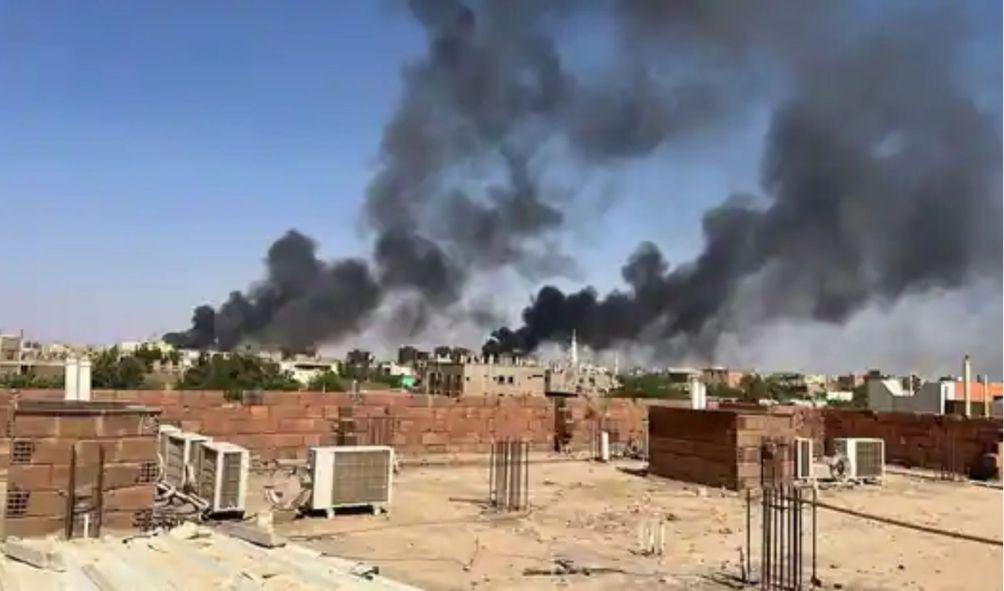Wars Threaten US Interests in Africa- Report
A recent evaluation of threats to American interests suggests that China and Russia remain significant adversaries, particularly in Africa.
The intelligence report from the American intelligence community identifies anticipated adversaries such as China, Russia, Iran, and North Korea. Additionally, it highlights the Houthis and the Gaza conflict as potential concerns to monitor.
The recent 2024 Annual Threat Assessment report, released last week, provides a summary of global threats observed from January to the present. It encompasses significant events such as the conflicts between Israel and Hamas, Russia and Ukraine, as well as unrest in Sudan and incidents in the Red Sea region.
The United States also recognized Africa’s susceptibility to terrorism as a danger to its interests.
It says “terrorists will maintain an interest in conducting attacks using chemical, biological and radioactive materials against US persons, allies and interests worldwide.” They can take advantage of ongoing wars to procure these deadly weapons, it warns.
Militants linked to Al Qaeda such as Al Shabaab and those associated with ISIS could exploit the chaotic conditions in the Horn of Africa and recruit fighters through unregulated social media platforms, according to the report.
According to Russia, it plans to utilize private military and security companies (PMSCs) and paramilitary factions to accomplish its goals. The main purpose is to have a presence on the battleground in Ukraine, but these entities will also serve to obscure Moscow’s involvement in delicate operations and to exert influence and assert power across the Middle East and Africa.
In Africa, Washington is concerned about conflicts like the one in Sudan because they increase the chances of conflict spreading beyond Sudan’s borders, attracting involvement from external parties, and resulting in civilian casualties and displacement.
The conflict in Sudan will mark its first anniversary on April 15, stemming from clashes initiated by the Sudanese Armed Forces and Rapid Support Forces. However, this issue extends beyond Sudan’s borders. Situated at the intersection of the Horn of Africa, the Sahel, and North Africa, Sudan may once more become a fertile ground for terrorist and criminal groups.
The report suggests that Sudan’s opposing groups could be gaining heightened foreign military assistance, potentially impeding advancements in prospective peace negotiations. Any escalation in support from one external party may trigger a rapid influx of others. Prior allegations have implicated Russia and the UAE in supplying arms to various Sudanese factions.
ALSO READ:
- “Two Groups, One Agenda”: Gachagua Accuses Raila of Secret Political Deals
- Exclusive: Ida Odinga’s 75th Birthday Party in Karen (Photos)
- FKF President Discloses Exact Amount Paid to Harambee Stars Players
- Gachagua’s Ally Senator John Methu Admits Ruto Might Win 2027 Elections
- Maraga Explains Why He Hasn’t Campaigned in Kisii Despite 2027 Bid
China is perceived as primarily aiming to expand its influence in Africa through a range of tactics, including propaganda. Additionally, the Chinese military, the People’s Liberation Army, has been extending its reach, beginning with the establishment of the Ream Naval Base in Djibouti and now expanding to other locations. Concerns have also been raised by the US regarding China’s orbital technology demonstrations, which indicate China’s capability to deploy future space-based weapons.
“Cyber China remains the most active and persistent cyber threat to the U.S. Government, private-sector, and critical infrastructure networks,” it says.
“Beijing reportedly is considering pursuing military facilities in multiple locations, including—but not limited to—Burma, Cuba, Equatorial Guinea, Pakistan, Seychelles, Sri Lanka, Tajikistan, Tanzania, and the UAE,” it says.
China is demonstrating a higher degree of sophistication in its influence activity, including experimenting with generative AI. TikTok accounts run by a PRC propaganda arm reportedly targeted candidates from both political parties during the US midterm election cycle in 2022.”
The US isn’t calling these rivalries ‘wars’ yet. Instead, it is labeling them ‘strategic competition’ among major powers which has led to “more intense and unpredictable transnational challenges, and multiple regional conflicts with far-reaching implications,” says the summary introduction.
The report indicates that China, characterized by ambition yet tinged with anxiety, along with a confrontational Russia, certain regional powers like Iran, and increasingly proficient non-state actors, are challenging established norms of the international system and the dominance of the United States within it.
The concern regarding China’s capabilities is evident in the efforts made by the US to convince allies such as the Netherlands to avoid utilizing Huawei technology and to restrict the export of microchip technology to China.
The United States is deeply concerned about China’s technological progress, as evidenced by Congress’s overwhelming vote of 352 to 65 to prohibit the Chinese-owned TikTok video-sharing platform due to national security concerns. President Joe Biden has stated that he will sign the bill if it reaches his desk, even though numerous American businesses depend on the app for revenue.
The United States alleges that TikTok is utilized by the Communist Party of China (CPC) for espionage purposes, targeting the American military, populace, and advancements in technology.
For years, by nurturing relationships and offering assistance, finances, arms, and education to various allies and surrogates across the Middle East such as Lebanese Hezbollah, the Houthis, and militias supported by Iran in Iraq and Syria, Tehran will maintain its ability to showcase the effectiveness of utilizing these elements of the “Axis of Resistance” to counter Western dominance.
Wars Threaten US Interests in Africa- Report
